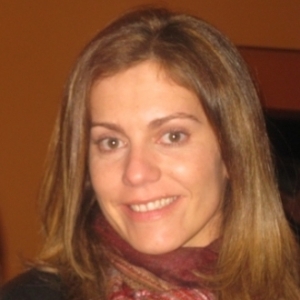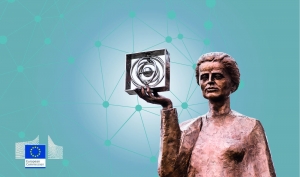ESR12
Project title: An Institutional Approach to EU Copyright Reform
Researcher: Natasha Mangal
Natasha Mangal holds a Juris Doctor and Certificate in Intellectual Property: Art, Museum and Cultural Heritage Law from the DePaul University College of Law in Chicago, IL. She served as Symposium Director and Editor on DePaul’s IP Law Journal, and competed on her school’s National Appellate Moot Court team, earning titles of semifinalist and best competition brief. She also served as President of DePaul’s IP Law Society, collaborating with the school’s Center for IP Law and Information Technology (CIPLIT) to host events uniting legal academics and practitioners from throughout the U.S.. She received two scholarships for her performance, and was given an award of distinction for completing over 200 hours of pro-bono legal work.
Professionally, Natasha has held numerous legal internships ranging from public institutions to courtrooms, including the Chicago History Museum, IRI inc., Global IP Law Group, PLK Law Group, and the Circuit Court of Cook County for the Honorable Judge Daniel Patrick Brennan. At DePaul’s IP Law Clinic, she directly served clients on issues of Copyright and Trademark law pursuant to her 7-11 license.
Her interests regard legal issues surrounding artist rights and policymaking in IP law.
Email: mangal@ceipi.edu

Host Institution: Université de Strasbourg; Degree Partner: Queen Mary, University of London
Objectives:
Rapid technological advancements in recent years have exposed inefficiencies of the current system of lawmaking and norm-setting in copyright. Legislation in this field is often limited to incremental change that reflects existing paradigms, doing little to achieve true reform. This is an especially challenging issue for the EU, as negotiating changes in copyright law amongst a constellation of national laws has confounded efforts to create a more harmonized system overall.
Some jurisdictions have created special administrative bodies with the competencies necessary to facilitate the regulation of the copyright system. With broader authority to set tariffs, access and obtain information from industry actors, and mediate stakeholder disputes, these entities are able to be more responsive to technological changes and can serve in a norm-setting capacity without relying on lengthy legislative processes.
In formulating a strategy for the EU that is likely to ensure flexibilities necessitated by the digital age, this project will examine the potential role of regulatory bodies in contributing to the advancement of EU copyright law. Specifically, this project will compare the regulatory capacities of copyright institutions in selected jurisdictions to discern those characteristics that enhance policymaking authority, encourage transparency in stakeholder negotiations, and complement enforcement mechanisms.
Expected Results:
The results of the project will take the form of policy recommendations for either expanding the competencies of existing institutions or proposing a new, centralized institution for the advancement of copyright at the EU level.
Supervisors:
Co-supervisor:




